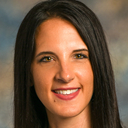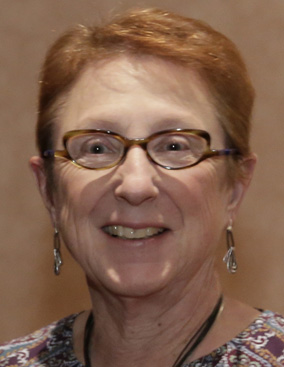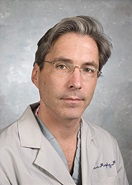Ask The Experts: Clinical Case Discussions for Managing Reversal of Neuromuscular Blockade
Thursday, April 8, 2021
12:00 p.m. - 1:00 p.m. ET
Overview
This educational activity focuses on clinical challenges and controversies related to neuromuscular blockade reversal. Expert faculty will focus on reversal strategies for neuromuscular blockade in specific high-risk patient populations as well as develop a plan for reversal based on clinical and neuromuscular patient assessments. Team-based collaboration strategies for reversal agent selection and dosing will also be discussed.
The content for this activity is based on questions and comments from participants at a recent educational symposium on this topic. Time for additional questions from the webinar audience will be provided at the end of the presentation.
Learning Objectives
- Analyze reversal strategies for neuromuscular blockade in specific high-risk patient populations.
- Develop a neuromuscular blockade reversal strategy based on clinical and neuromuscular assessment of recovery.
- Select the most appropriate reversal agent and dose for the reversal of neuromuscular blockade in collaboration with other clinicians.
Target Audience
This activity was planned to meet the educational needs of pharmacists, physicians, physician assistants, and nurse practitioners involved in care for surgical patients requiring neuromuscular blockade.
Format
This activity features slide presentations, active learning, and questions/discussion with faculty.
Rachel C. Wolfe, Pharm.D., M.H.A., BCCCP
Clinical Pharmacy Specialist
Perioperative and Surgical Critical Care
Barnes-Jewish Hospital
St. Louis, Missouri
Rachel C. Wolfe, Pharm.D., M.H.A., BCCCP, is Clinical Pharmacy Specialist of Perioperative and Surgical Critical Care at Barnes-Jewish Hospital and Washington University Medical Center in St. Louis, Missouri. She is also Adjunct Clinical Instructor for the Barnes-Jewish Hospital Goldfarb School of Nursing and St. Louis College of Pharmacy. , Dr. Wolfe is responsible for the provision of clinical pharmacy services in the perioperative and periprocedural environment and for the coordination of clinical services provided by four operating room pharmacy satellites. She also serves as a preceptor for Doctor of Pharmacy students and pharmacy residents and is co-chair of the Enhanced Surgical Recovery Pharmacy & Documentation committee and the Analgesia subcommittee of the Pharmacy & Therapeutics committee.
Dr. Wolfe earned her Doctor of Pharmacy degree from St. Louis College of Pharmacy and Master of Health Administration degree from Webster University, also in St. Louis. She completed her residency training at University of Kentucky HealthCare, and she is board certified in critical care.
Dr. Wolfe is a member of the American College of Clinical Pharmacy, American Society of Enhanced Recovery, and Society of Critical Care Medicine. In 2011 she received Barnes-Jewish Hospital’s David A. Gee Meritorious Service Award and Team Award for Quality Improvement for Anesthesia Medication Management.
Deborah Wagner, Pharm.D., FASHP
Clinical Professor of Pharmacy
University of Michigan College of Pharmacy
Clinical Professor of Anesthesiology
Michigan Medicine
Ann Arbor, Michigan
Deborah Wagner, Pharm.D., FASHP, is Clinical Professor at the University of Michigan College of Pharmacy and Clinical Professor of Anesthesiology at Michigan Medicine in Ann Arbor.
Dr. Wagner earned her Doctor of Pharmacy degree from the University of Michigan College of Pharmacy. She is a fellow of ASHP.
Dr. Wagner precepts Doctor of Pharmacy students and residents and also teaches for the College of Pharmacy, School of Medicine, and Graduate Nurse Practitioner program at the University. She provides pain management consultation for the pediatric acute pain service and has developed standardized pain management strategies for intravenous acetaminophen, elastomeric pain pumps, and low dose lidocaine and ketamine infusions to enhance multimodal analgesia. Currently she is part of the University of Michigan Injury Prevention network collaborating to address the opioid epidemic regarding misuse and abuse across the state. Dr. Wagner also participates in the medication safety taskforce within the Department of Anesthesiology to address standardization of medications throughout the perioperative area, and she chairs the Pediatric Medication Safety Committee.
Dr. Wagner is widely recognized for promoting medication safety. She and colleagues at the University of Michigan Hospitals and Health System were a finalist for the 2011 ASHP Foundation Award for Excellence in Medication Use Safety for their advancements in pain management therapy and safe practice. In 2015 she received the Medication Safety Cheers Award from the Institute for Safe Medication Practices, and she was the runner up for the Anesthesia Patient Safety Foundation’s Medication Safety Award in 2018.
Glenn S. Murphy, M.D.
Clinical Professor, Department of Anesthesiology
University of Chicago Pritzker School of Medicine
Director of Clinical Research
NorthShore University Health System
Evanston, Illinois
Glenn Murphy, M.D., is the Jeffery S. Vender Chair of Anesthesiology Research and Education and Director of Cardiac Anesthesia and Clinical Research at NorthShore University HealthSystem, a hospital affiliated with the University of Chicago Pritzker School of Medicine.
Dr. Murphy received his Doctor of Medicine from Hahnemann University and completed an anesthesiology residency at Northwestern University Medical School in Chicago, Illinois. He is Diplomate, American Board of Anesthesiology and Board Certified in intraoperative transesophageal echocardiography.
Dr. Murphy has several areas of research interest, with a particular focus on issues related to management of neuromuscular blockade. Previous topics examined in his research include the incidence of residual neuromuscular blockade, the clinical complications related to incomplete neuromuscular recovery, and the effects of neuromuscular monitoring on clinical outcomes. Ongoing research studies includes investigations designed to identify patients at risk for residual blockade, examinations of new quantitative neuromuscular monitoring technologies, and studies designed to identify the impact of reversal agents on muscle strength following surgery.
CPE Information

The American Society of Health-System Pharmacists is accredited by the Accreditation Council for Pharmacy Education as a provider of continuing pharmacy education.
ACPE #: 0204-0000-21-400-L01-P
Activity Type: Application-based
CE Credits: 1.0 hour
Activity Fee: Free of charge
CME Information

The American Society of Health-System Pharmacists is accredited by the Accreditation Council for Continuing Medical Education to provide continuing medical education for physicians.
The American Society of Health-System Pharmacists designates this enduring material for a maximum of 1.0 AMA PRA Category 1 Credits™. Physicians should claim only the credit commensurate with the extent of their participation in the activity.
Claim CE Within 60 Days
Claim CE (enter the CE code announced during activity and complete the evaluation).
Verify credit has posted to your NABP eProfile account before the 60-day deadline.
After ACPE's 60-day deadline, ASHP will no longer be able to report credits.
Join the live interactive webinar using your computer or smart device.
Watch for a confirmation email with additional instructions.
Get the app and view system requirements




